数据可视化展示除了静态数据的展示,还有动态数据的实时更新。博主通过阅读chart.js的api,总结了以下两种方法:
方法1、直接更新图表的数据集
this.mydata_1=[7,22,18,24,10,30];//获取新数据
this.myChart.data.datasets[0].data = this.mydata_1;//数据集数据更新
this.myChart.update();//图表更新方法2、清除原图表,生成新图表
this.myChart.destroy();//原图表清除
this.mydata_1=[7,22,18,24,10,30]//获取新数据
this.get10();//初始化生成新图表数据更新样例:
1)折线图
1-方法2
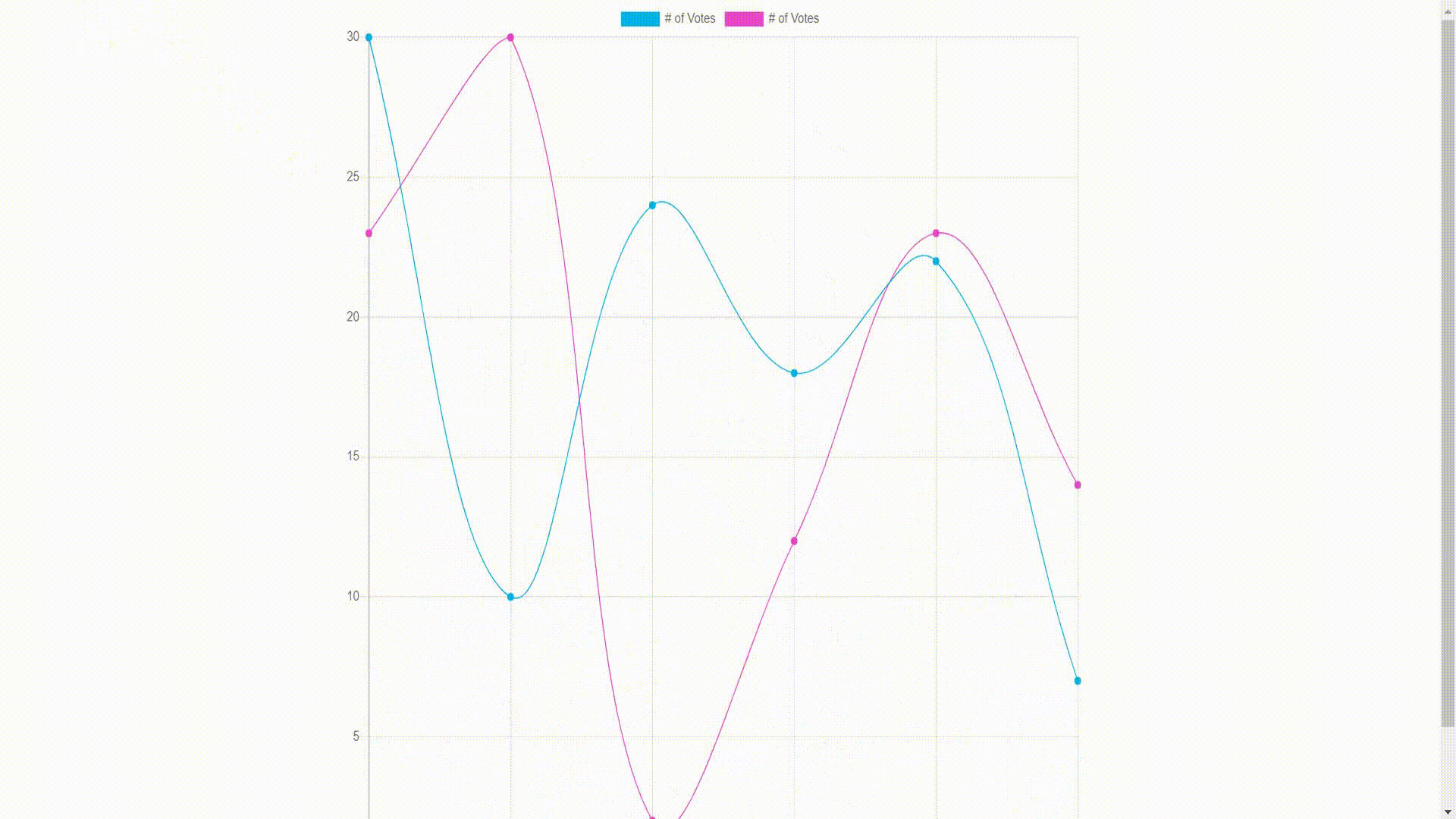
<template>
<div class="container">
<div class="w" @click="get">
<canvas id="myChart10" width="100" height="100"></canvas>
</div>
</div>
</template>
<script>
export default {
name: "Charts",
data(){
return {
myChart: "",
mydata_1:[30,10,24,18,22,7],
mydata_2:[23,30,2,12,23,14],
}
},
mounted(){
this.get10();
},
methods:{
get(){
this.myChart.destroy();
this.mydata_1=[7,22,18,24,10,30];
this.mydata_2=[14,23,12,2,30,23];
this.get10();
},
get10() {
let ctx = document.getElementById("myChart10");
this.myChart = new Chart(ctx, {
type: 'line',
data: {
labels: ['Red', 'Blue', 'Yellow', 'Green', 'Purple', 'Orange'],
datasets: [
{
label: '# of Votes',
data: this.mydata_1,
fill:false,
backgroundColor: 'rgb(0,179,235,0.4)',
borderColor: 'rgb(0,179,235)',
pointBackgroundColor:'rgb(0,179,235)',
borderWidth: 1,
order:1,
},
{
label: '# of Votes',
data: this.mydata_2,
fill:false,
backgroundColor: 'rgb(235,69,201,0.4)',
borderColor: 'rgb(235,69,201)',
pointBackgroundColor:'rgb(235,69,201)',
borderWidth: 1,
order:1,
},
],
},
options:options,
});
},
}
}
</script>2-方法1
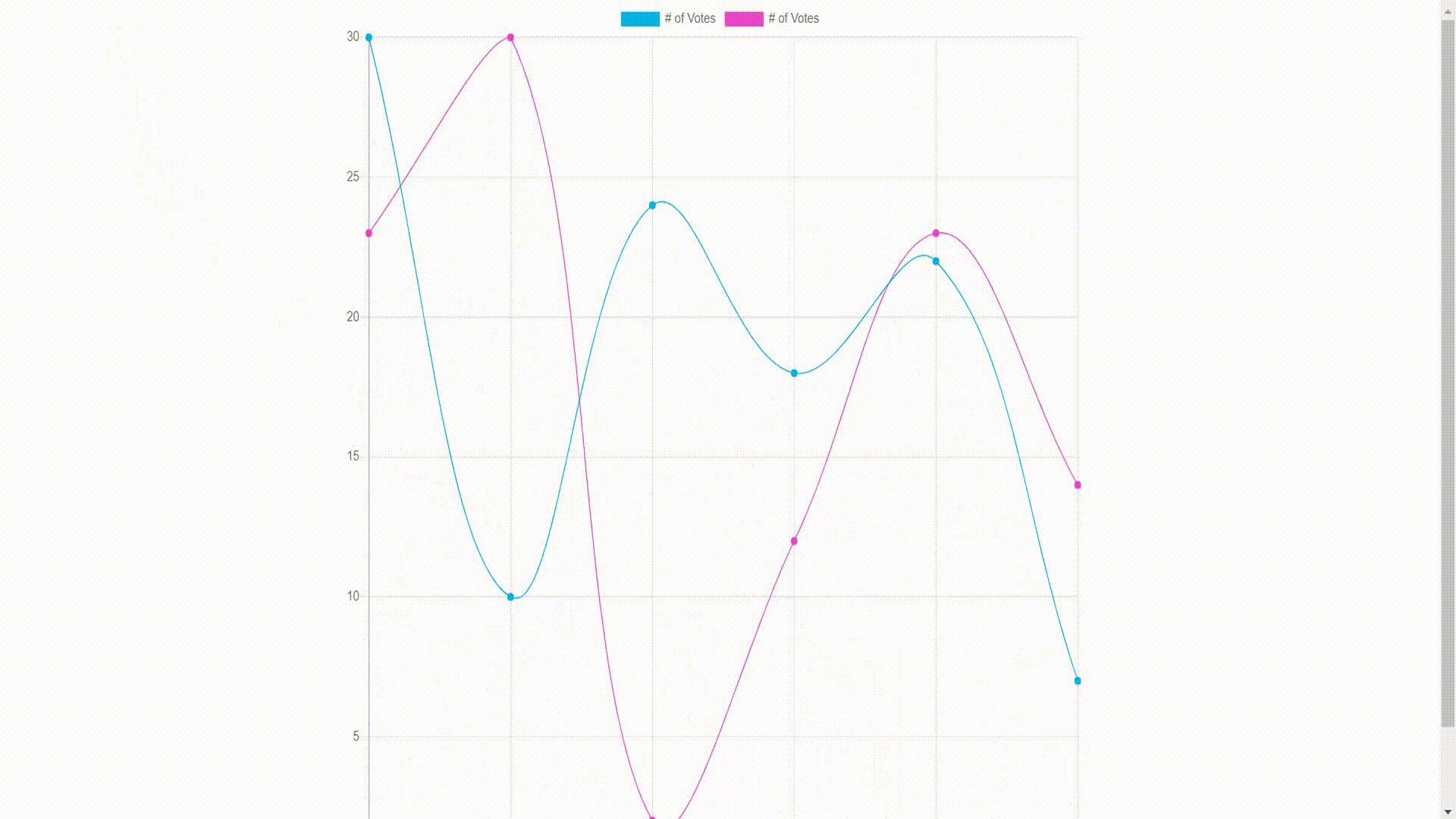
<script>
export default {
methods:{
get(){
this.mydata_1=[7,22,18,24,10,30];
this.myChart.data.datasets[0].data = this.mydata_1;
this.mydata_2=[14,23,12,2,30,23];
this.myChart.data.datasets[1].data = this.mydata_2;
this.myChart.update();
},
}
}
</script>2)柱状图
1-方法2
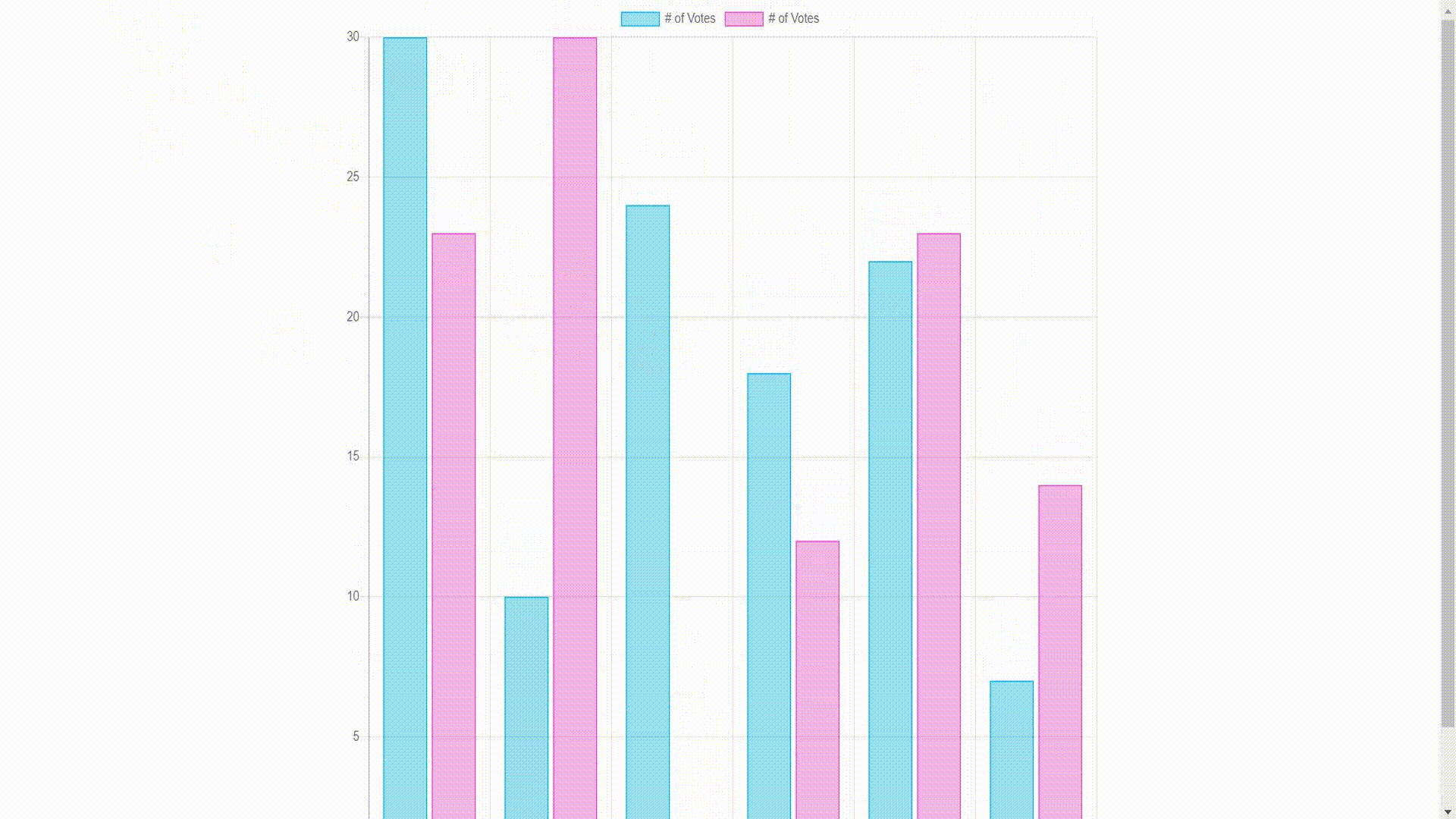
<script>
export default {
methods:{
get(){
this.myChart.destroy();
this.mydata_1=[7,22,18,24,10,30];
this.mydata_2=[14,23,12,2,30,23];
this.get10();
},
get10() {
let ctx = document.getElementById("myChart10");
this.myChart = new Chart(ctx, {
type: 'bar',
data: data,
options:options,
});
},
}
}
</script>2-方法1
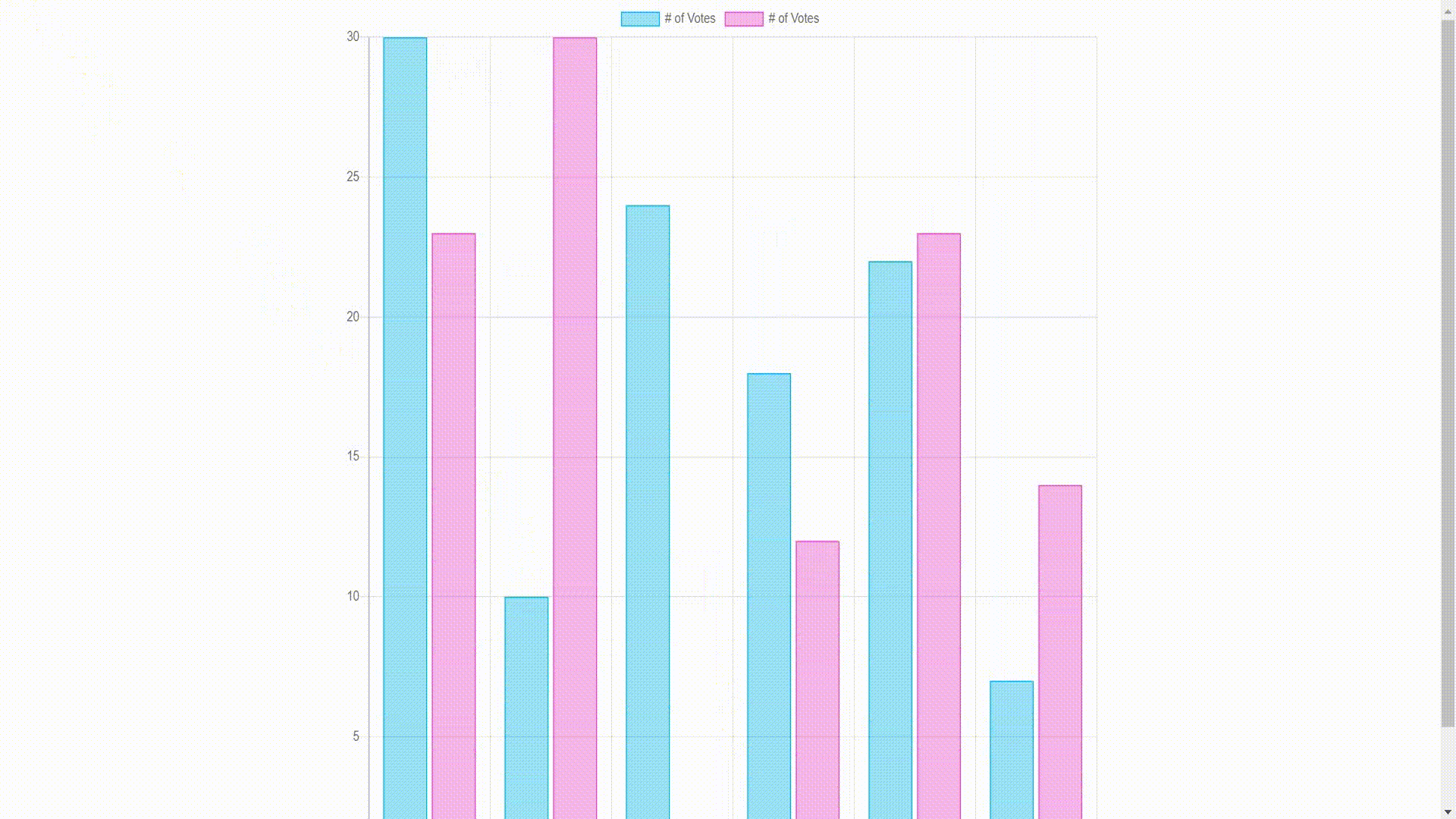
<script>
export default {
methods:{
get(){
this.mydata_1=[7,22,18,24,10,30];
this.myChart.data.datasets[0].data = this.mydata_1;
this.mydata_2=[14,23,12,2,30,23];
this.myChart.data.datasets[1].data = this.mydata_2;
this.myChart.update();
},
}
}
</script>3)雷达图
1-方法2
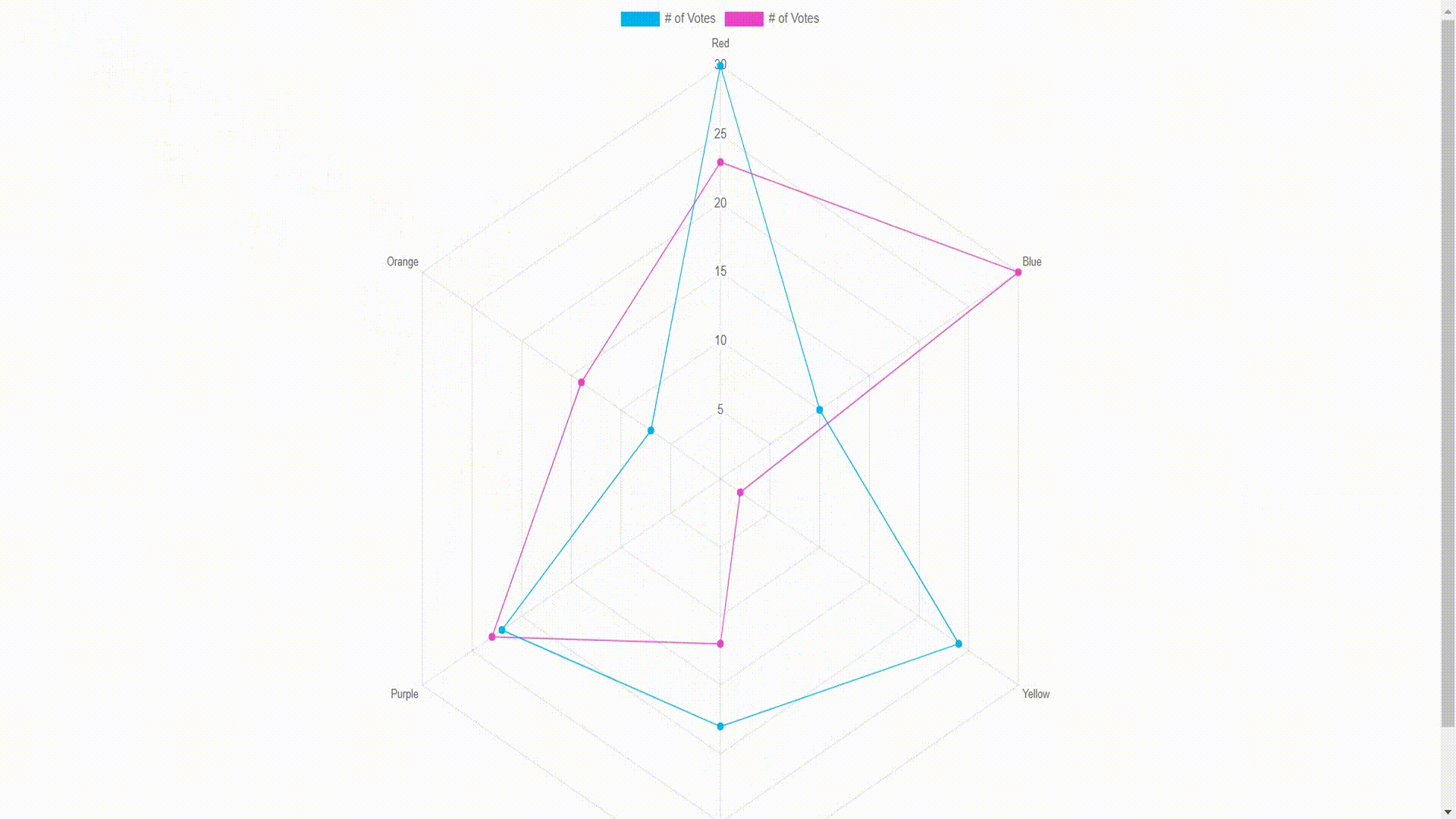
<script>
export default {
methods:{
get(){
this.myChart.destroy();
this.mydata_1=[7,22,18,24,10,30];
this.mydata_2=[14,23,12,2,30,23];
this.get10();
},
get10() {
let ctx = document.getElementById("myChart10");
this.myChart = new Chart(ctx, {
type: 'radar',
data: data,
options:options,
});
},
}
}
</script>2-方法1
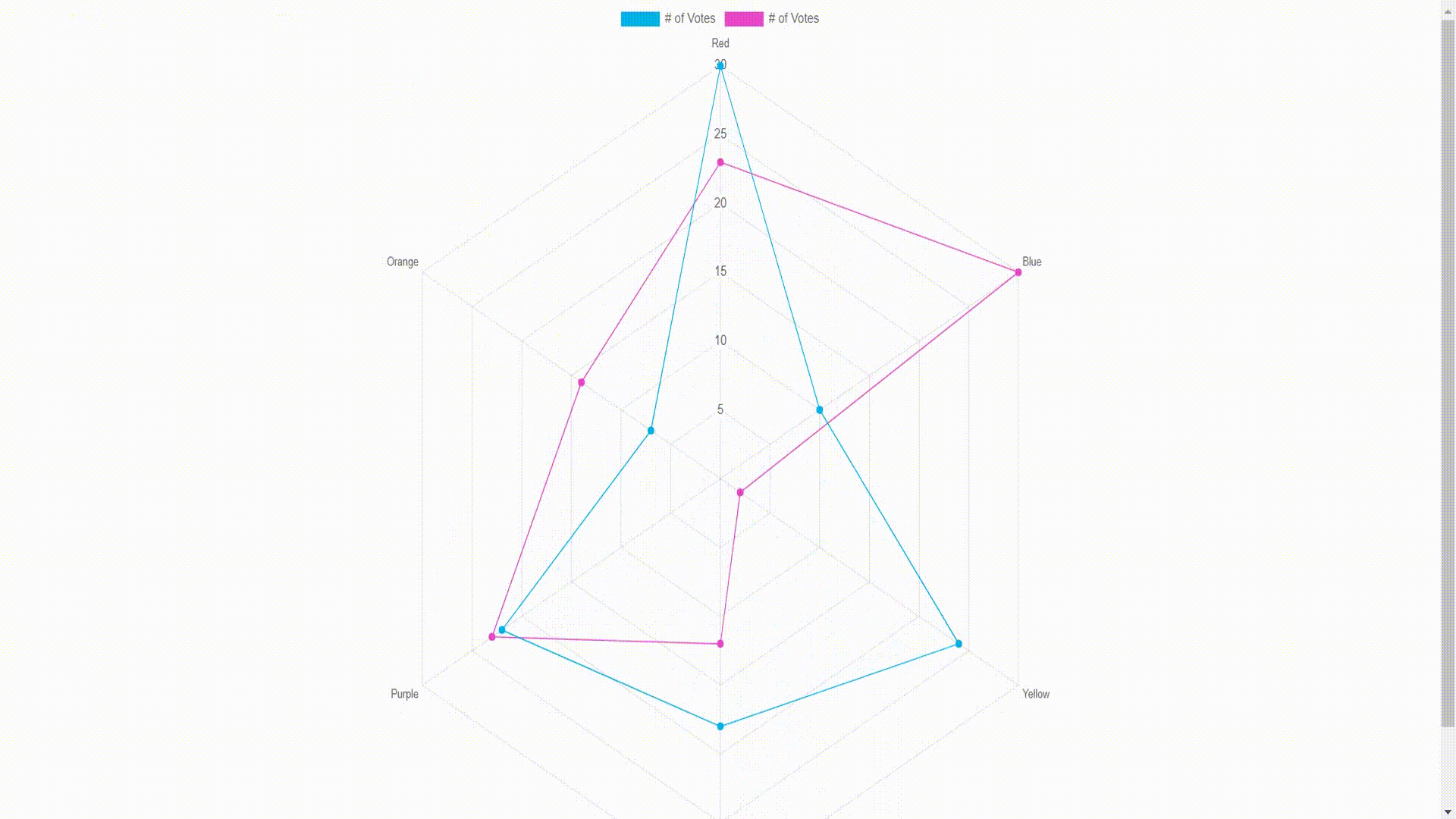
<script>
export default {
methods:{
get(){
this.mydata_1=[7,22,18,24,10,30];
this.myChart.data.datasets[0].data = this.mydata_1;
this.mydata_2=[14,23,12,2,30,23];
this.myChart.data.datasets[1].data = this.mydata_2;
this.myChart.update();
},
}
}
</script>






















